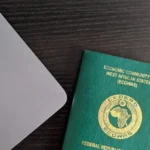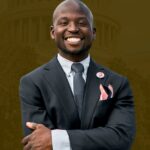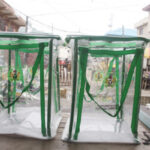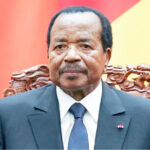Cameroon voted Sunday in polls overshadowed by a partial opposition boycott and separatist violence that has displaced hundreds of thousands of people.
Elections for the central African country’s legislature and local councils took place for the first time in seven years, after two postponements.
But an opposition boycott means they are unlikely to trouble the rule of President Paul Biya, one of the world’s oldest and longest-serving leaders, who has held a tight grip on power for 37 of his 86 years.
As voting began, large numbers of police and soldiers deployed on the streets of Buea, the capital of the Southwest Region, one of two provinces gripped by bloody separatist violence.
Polling stations in the city were quiet, with no violence reported and not many voters. Most of the morning’s voting appeared to have been done by members of the security forces, deployed to keep the peace.
“Voting operations were completed across the country in 26,336 polling stations in calm, order and discipline,” Erik Essousse, director general of the electoral commission, told reporters.
The main opposition party, the Movement for the Rebirth of Cameroon (MRC), refused to field a single candidate.
The boycott will all but guarantee a crushing victory for the ruling Cameroon People’s Democratic Movement, which in the outgoing legislature had 148 out of 180 seats.
The other large opposition party, the Social Democratic Front (SDF), which currently has 18 seats, did take part in Sunday’s vote, going back on a threat to snub it.
In the capital Yaounde, it appeared that enthusiasm for the vote was subdued, with no crowds outside polling stations in the district of Briqueterie.
“People went to mass first, there’ll be more coming in the afternoon,” said one election official.
– ‘Spiral of violence’ –
Cameroon is struggling with two conflicts.
In the two English-speaking regions — the southwest and northwest — the armed forces are battling separatists who want to secede from the majority French-speaking country.
The conflict has claimed more than 3,000 lives and caused more than 700,000 people to flee since it began over two years ago, according to tolls compiled by NGOs.
Amnesty International said there has been a “surge in violence” by the Cameroon military in the weeks leading up to the vote, resulting in killings and the displacement of thousands in the English-speaking regions.
The SDF traditionally draws much of its support from the anglophone regions but now fears that it has been outflanked by the radicals — and says its candidates there have come under attack.
Similar worries were voiced for the safety of polling stations in Cameroon’s Far North region, which has been battered by Boko Haram jihadists crossing from Nigeria.
The government on Friday announced that all of Cameroon’s borders would be closed until Monday, and shops and drink outlets had to close on polling day.
But the only violence reported so far Sunday was a gun battle between government troops and separatists that disrupted voting in Muyuka, a rebel stronghold in Southwest Region. No casualties were reported.
– City power –
MRC leader Maurice Kamto spent nine months in jail after his defeat in 2018 presidential elections and is now abroad.
“We could have had a few seats in parliament and some town councillors, but how would that enable us to influence events in Cameroon?” he said in an interview with AFP in Paris last month.
Given the seemingly inevitable outcome of legislative vote, most media attention has focused on simultaneous municipal elections.
Some cities, including Douala, the country’s economic hub, could swing to the opposition, according to some forecasts.
City chiefs are to gain new powers under measures taken in December to decentralise some authority out of Yaounde.
The reforms have been triggered by the anglophone crisis although they fall far short of meeting the separatists’ demands.
“The stakes (on Sunday) are local,” said Stephane Akoa, a researcher at the Paul Ango Ela think tank in Yaounde. (AFP)
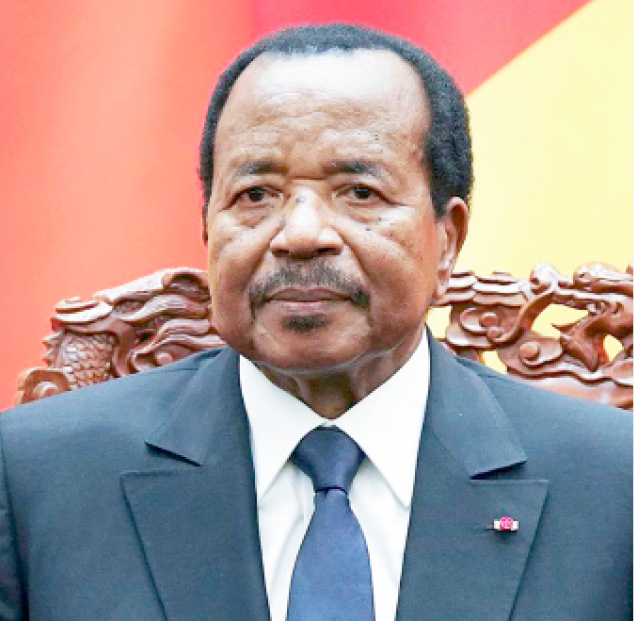
 Join Daily Trust WhatsApp Community For Quick Access To News and Happenings Around You.
Join Daily Trust WhatsApp Community For Quick Access To News and Happenings Around You.